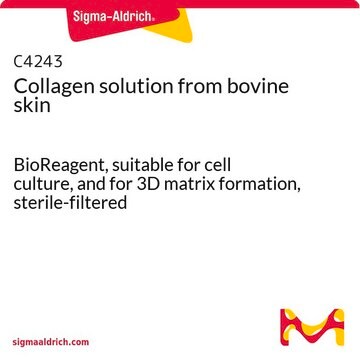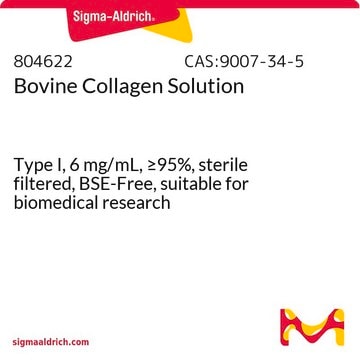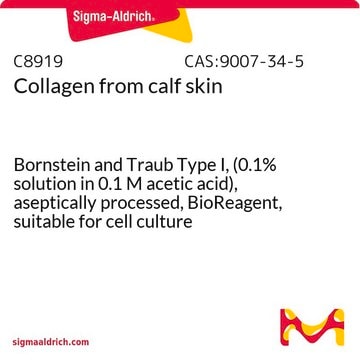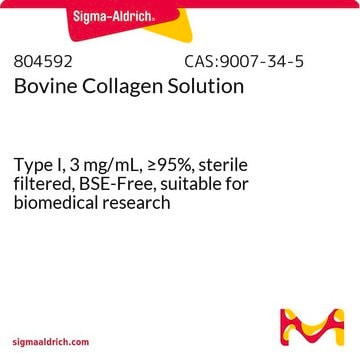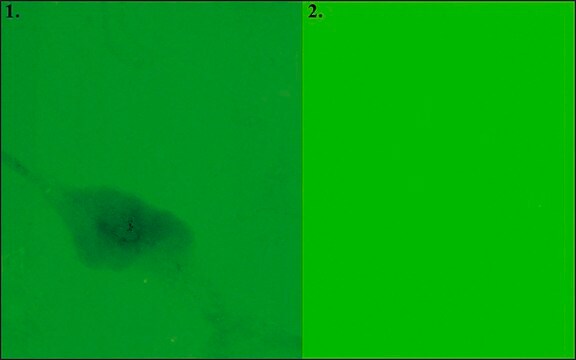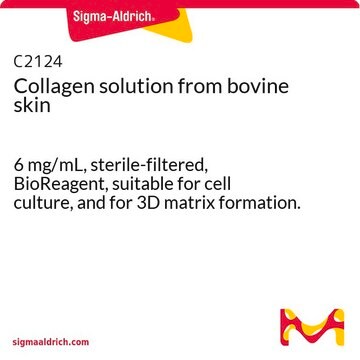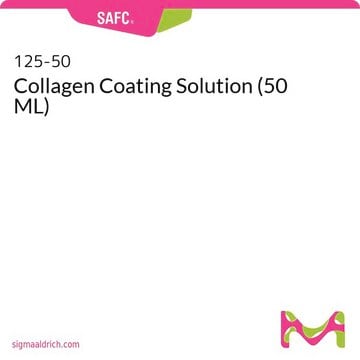C4361
Bovine Collagen Type I
from bovine skin, liquid, 1 mg/mL, FITC Conjugated, used for gel analysis, cell seeding, and collagenase assays
Synonym(s):
Collagen from bovine skin
About This Item
Recommended Products
product name
Collagen Type I−FITC Conjugate from bovine skin, ~1 mg/mL, solution
biological source
bovine skin
Quality Level
form
solution
concentration
~1 mg/mL
shipped in
wet ice
storage temp.
−20°C
Gene Information
cow ... COL1A1(282187) , COL1A2(282188)
human ... MMP1 (includes EG:4312)
mouse ... MMP1 (includes EG:4312)
rat ... MMP1 (includes EG:4312)
1 of 4
This Item | C2124 | C8919 | C4243 |
|---|---|---|---|
| form solution | form liquid | form solution (0.1% solution in 0.1 M acetic acid) | form liquid |
| shipped in wet ice | shipped in wet ice | shipped in wet ice | shipped in wet ice |
| storage temp. −20°C | storage temp. 2-8°C | storage temp. 2-8°C | storage temp. 2-8°C |
| biological source bovine skin | biological source bovine skin | biological source bovine (calf) skin | biological source bovine skin |
| concentration ~1 mg/mL | concentration 6 mg/mL | concentration (0.1% solution in 0.1 M acetic acid) | concentration 2.9-3.2 mg/mL |
General description
Application
Biochem/physiol Actions
Physical form
Storage Class Code
10 - Combustible liquids
WGK
WGK 1
Flash Point(F)
Not applicable
Flash Point(C)
Not applicable
Personal Protective Equipment
Certificates of Analysis (COA)
Search for Certificates of Analysis (COA) by entering the products Lot/Batch Number. Lot and Batch Numbers can be found on a product’s label following the words ‘Lot’ or ‘Batch’.
Need A Sample COA?
This is a sample Certificate of Analysis (COA) and may not represent a recently manufactured lot of this specific product.
Already Own This Product?
Find documentation for the products that you have recently purchased in the Document Library.
Customers Also Viewed
Our team of scientists has experience in all areas of research including Life Science, Material Science, Chemical Synthesis, Chromatography, Analytical and many others.
Contact Technical Service

